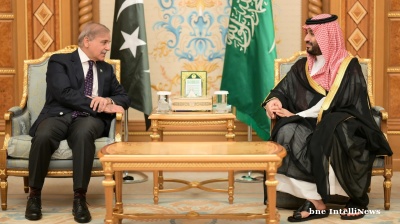The Municipality of Budapest will organise the 30th Budapest Pride event on June 28 as planned, reviving an earlier local tradition of holding a "freedom celebration" coinciding with the anniversary of the withdrawal of Soviet troops.
Mayor Gergely Karacsony argued that the event will be organised under the auspices of the Budapest municipality, which, in his view, does not require separate authorisation from the authorities and is not subject to the government's recent restrictions on the right to assembly.
Government Minister Gergely Gulyás insisted that Budapest is "trying to play legal tricks" and "pretend that the event is not governed by the law on assembly". The police retain the right to ban the march or appeal the city's notification to the courts on the site of the march, he added.
In March, Hungary's parliament amended the 2018 Assembly Act to prohibit public gatherings that are considered to violate child protection rules, specifically referencing the "promotion or display of homosexuality." This effectively banned Pride marches across Hungary.
The legal loophole was closed after the 15th amendment of the Fundamental Law, which enshrines the protection of children's physical, intellectual and moral development as a constitutional priority, ranking it above all other fundamental rights, except the right to life.
After the legislation was passed, organisers said the march would go ahead as planned.
Details of the time and site of the march remain unknown. It is further complicated by the fact that the radical right-wing party Our Homeland claims to have obtained the planned route and said it requested permits to reserve those areas during the march, which could potentially block it.
Budapest police said the planned June 28 Pride event, submitted by the city's chief notary, falls under Hungary's Assembly Act and will be assessed accordingly.
A spokesperson for Budapest Pride underlined that the community has a constitutional right to assemble peacefully in defence of dignity and fundamental rights. "This struggle is not just for the LGBTQ community, but for everyone," he said.
Meanwhile, 71 Members of the European Parliament announced they would attend the march in protest against Prime Minister Viktor Orbán's efforts to block the event. During a plenary debate in Strasbourg, MEPs from the liberal, socialist and green groups expressed solidarity with Hungary's LGBTQ citizens.
S&D leader Iratxe García Pérez declared: "We see and hear Hungary's LGBTQ citizens, and we will march proudly and loudly alongside them on June 28." Dutch Green MEP Tineke Strik said their attendance would show "Hungarians are not alone."
News

Taiwan central bank maintains rates as growth momentum strengthens
Officials at the Central Bank of the Republic of China cited robust economic performance and subdued price pressures as reasons to hold steady.

Trump mistakes Armenia for Albania for the third time at UK press conference
US president says he brought peace to “Aberbaijan” and Albania as he touts his peacemaker credentials during UK state visit.

Iran conducts evening ballistic missile test at Semnan facility
Iran conducts evening ballistic missile test at Semnan range with Sejjil-class system, residents report dramatic launch amid heightened security around military facility.

Pakistan gives Saudi Arabia a landmark Article 5 collective security guarantee
In what is likely to be a game-changing decision, Pakistan, a nuclear power, has given Saudi Arabia an Article 5-like collective security guarantee.
_1758207765.jpg)



